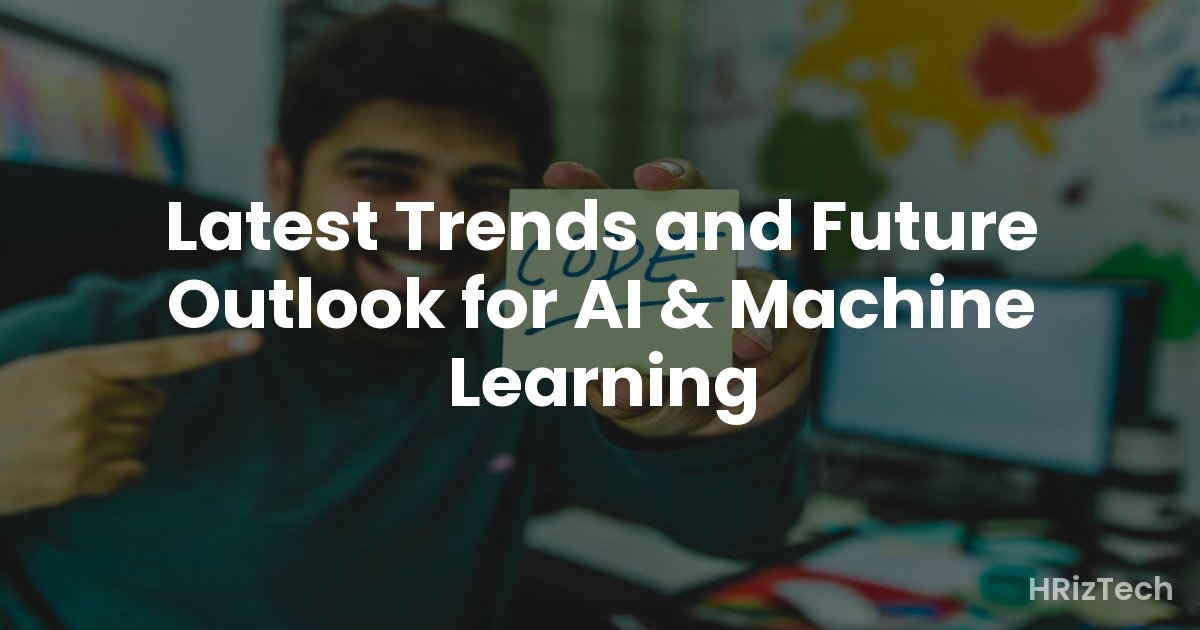Latest Trends and Future Outlook for AI & Machine Learning

Latest Trends and Future Outlook for AI & Machine Learning
- AI and ML are rapidly evolving, impacting various sectors.
- Generative AI is transforming content creation and design.
- Ethical considerations are paramount in AI development and deployment.
- The future of AI involves increased automation, personalization, and collaboration with humans.
The Rise of Generative AI
Generative AI, a subset of artificial intelligence, has emerged as a dominant force, capable of creating new content ranging from text and images to music and code. Tools like DALL-E 2, Midjourney, and Stable Diffusion are revolutionizing the creative industries, enabling artists, designers, and marketers to generate unique visuals with unprecedented ease. Furthermore, advancements in large language models (LLMs) like GPT-4 are transforming content writing, allowing for the automated generation of articles, marketing copy, and even creative writing pieces. This technology presents immense opportunities for increased productivity and innovation, yet also raises concerns about copyright infringement and the potential displacement of human creatives.
Impact on Various Industries
Generative AI's impact spans various sectors. In marketing, it's used for personalized advertising campaigns and content generation. In software development, it assists in code generation and bug detection. In healthcare, it aids in drug discovery and personalized medicine. The potential applications are virtually limitless, driving significant investment and research in this field.
Ethical Considerations in AI Development
The rapid advancement of AI necessitates a serious examination of its ethical implications. Bias in algorithms, data privacy concerns, and the potential for misuse are critical challenges that must be addressed. Ensuring fairness, transparency, and accountability in AI systems is crucial to prevent unintended consequences and promote responsible innovation. The development of ethical guidelines and regulations is paramount to navigate the complexities of AI deployment and mitigate potential risks.
Addressing Bias and Promoting Fairness
One of the most pressing concerns in AI is the presence of bias in algorithms. AI models are trained on data, and if this data reflects existing societal biases, the resulting AI system will likely perpetuate and even amplify those biases. Addressing this requires careful data curation, algorithm design, and ongoing monitoring to ensure fairness and equity in AI applications. Techniques like adversarial training and fairness-aware algorithms are being developed to mitigate bias and promote more equitable outcomes.
The Future of AI and Machine Learning
The future of AI and machine learning is poised for explosive growth. We can expect to see increased automation across various industries, leading to greater efficiency and productivity. Personalization will become even more prevalent, with AI systems tailoring experiences and services to individual needs and preferences. Furthermore, the collaboration between humans and AI will become increasingly sophisticated, with AI systems acting as powerful tools to augment human capabilities rather than replace them entirely.
Increased Automation and Human-AI Collaboration
AI-powered automation will continue to transform workflows across industries. Repetitive tasks will be handled by AI, freeing up human workers to focus on more strategic and creative endeavors. This collaboration between humans and AI will lead to more innovative solutions and increased productivity. The future workplace will likely involve a seamless integration of human intelligence and artificial intelligence, leveraging the strengths of both.
Practical Applications: PHP Code Examples
Let's look at some practical examples using PHP to demonstrate basic AI integration. While PHP isn't the primary language for complex AI model building, it can be used for tasks like interacting with APIs and processing data.
Conclusion
The advancements in AI and machine learning are reshaping our world at an unprecedented pace. Navigating this technological revolution requires a balanced approach that embraces innovation while addressing the ethical challenges and societal implications. By fostering responsible development and promoting collaboration between humans and AI, we can harness the transformative power of these technologies to build a more efficient, equitable, and prosperous future.
What are your thoughts on the ethical considerations surrounding the rapid advancement of generative AI?
Comments
No comments yet. Be the first to comment!